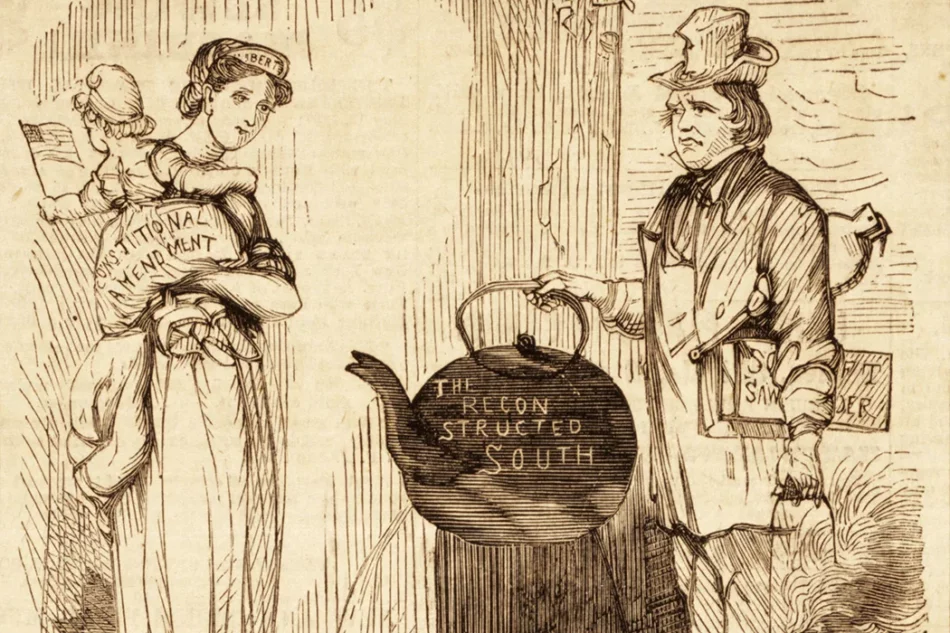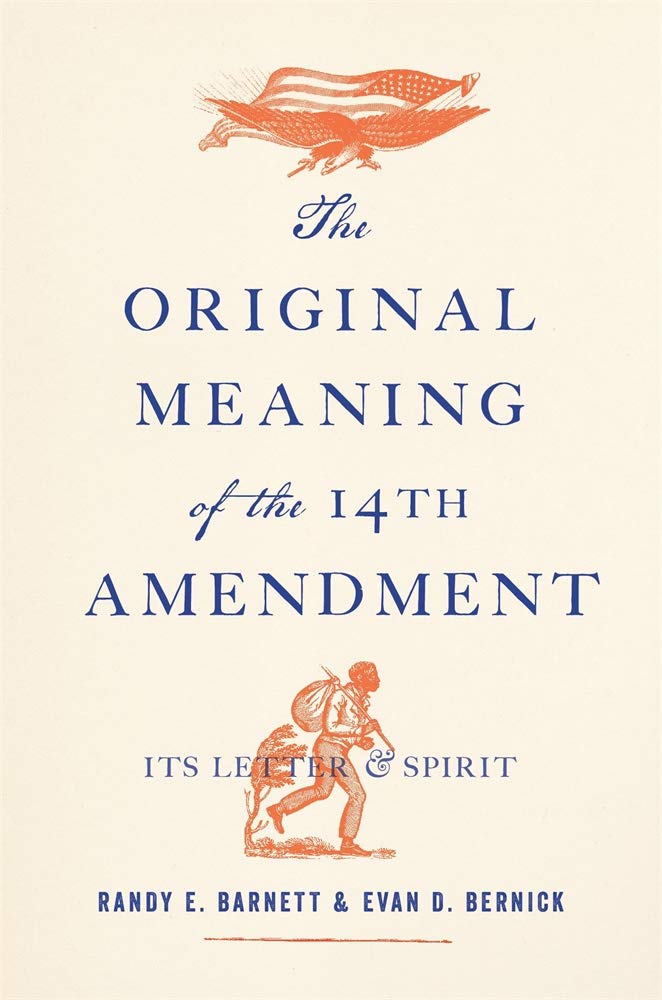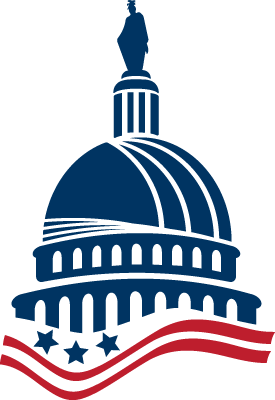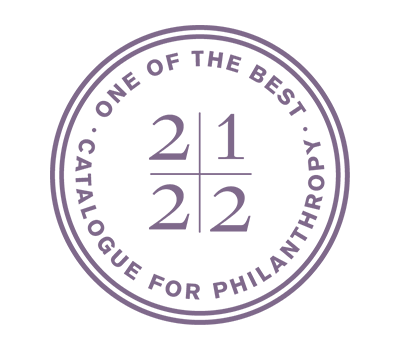We invite you to enjoy our ongoing series of public history webinars. These online events bring history to life through stories from renowned scholars and best-selling authors. Our webinars cover exciting topics, including the workings of the U.S. Capitol, untold tales of historical figures, and pivotal moments that have defined the American experience.
Keep an eye on our website, subscribe to our newsletter, or follow us on social media for the latest event updates and webinar schedules. We have recordings of each webinar readily available on our YouTube Channel.
 On May 18, the U.S. Capitol Historical Society hosted a webinar featuring two leading legal scholars, Georgetown Law Professor Randy E. Barnett and NIU Law Professor Evan Bernick, who co-authored the groundbreaking book “The Original Meaning of the Fourteenth Amendment: Its Letter and Spirit (Harvard University Press 2021).” As part of our ongoing Constitutional Amendments web series, we highlighted the key clauses of the Fourteenth Amendment, including the privileges and immunities of citizenship, due process of law, and equal protection under the law.
On May 18, the U.S. Capitol Historical Society hosted a webinar featuring two leading legal scholars, Georgetown Law Professor Randy E. Barnett and NIU Law Professor Evan Bernick, who co-authored the groundbreaking book “The Original Meaning of the Fourteenth Amendment: Its Letter and Spirit (Harvard University Press 2021).” As part of our ongoing Constitutional Amendments web series, we highlighted the key clauses of the Fourteenth Amendment, including the privileges and immunities of citizenship, due process of law, and equal protection under the law.
Together, we learned about the history behind the Fourteenth Amendment and its impact on civil rights in America from the experts themselves. With their extensive knowledge and expertise, our featured guests discussed the arguments put forth by antislavery advocates, the formation of the Republican Party, and how the amendment went beyond abolition to incorporate the concept of Republican citizenship into the Constitution. They also described how Congress used its powers to pass Reconstruction-era civil rights laws, providing valuable insights into the original scope of the amendment.

With evenhanded attention to primary sources, this book is a must-read exploration of one of the most significant amendments to the U.S. Constitution. Learn about how the Fourteenth Amendment changed the U.S. Constitution and enshrined the concept of Republican citizenship while granting Congress power to protect individual rights. Legal scholars Randy Barnett and Evan Bernick reveal how antislavery advocates drew on natural rights, the Declaration of Independence, and public-meaning originalism to advance their arguments, despite facing initial resistance in the courts.
Featuring
 Randy E. Barnett is the Patrick Hotung Professor of Constitutional Law at the Georgetown University Law Center and is the Faculty Director of the Georgetown Center for the Constitution. After graduating from Northwestern University and Harvard Law School, he tried many felony cases as a prosecutor in the Cook County States’ Attorney’s Office in Chicago. A recipient of a Guggenheim Fellowship in Constitutional Studies and the Bradley Prize, Professor Barnett has been a visiting professor at Penn, Northwestern and Harvard Law School.
Randy E. Barnett is the Patrick Hotung Professor of Constitutional Law at the Georgetown University Law Center and is the Faculty Director of the Georgetown Center for the Constitution. After graduating from Northwestern University and Harvard Law School, he tried many felony cases as a prosecutor in the Cook County States’ Attorney’s Office in Chicago. A recipient of a Guggenheim Fellowship in Constitutional Studies and the Bradley Prize, Professor Barnett has been a visiting professor at Penn, Northwestern and Harvard Law School.
Professor Barnett’s publications includes twelve books, more than one hundred articles and reviews, as well as numerous op-eds. His most recent book is The Original Meaning of the Fourteenth Amendment: Its Letter and Spirit (2021) (with Evan Bernick). His other books on the Constitution include: An Introduction to Constitutional Law: 100 Supreme Court Cases Everyone Should Know (2019) (with Josh Blackman); Restoring the Lost Constitution: The Presumption of Liberty (2nd ed. 2013); Our Republican Constitution: Securing the Liberty and Sovereignty of We the People (2016); and Constitutional Law: Cases in Context (4th ed. forthcoming 2022) (with Josh Blackman). His books on contracts are The Oxford Introductions to U.S. Law: Contracts (2010) and Contracts: Cases and Doctrine (7th ed. 2021) (with Nate Oman). And he is the author of The Structure of Liberty: Justice and the Rule of Law (2nd ed. 2014).
In 2004, he argued the medical marijuana case of Gonzalez v. Raich before the U.S. Supreme Court. In 2012, he was one of the lawyers representing the National Federation of Independent Business in its constitutional challenge to the Affordable Care Act in NFIB v. Sebelius. He’s appeared in numerous documentaries, including PBS’s Constitution USA with Peter Sagal and A More or Less Perfect Union with Judge Douglas Ginsburg; and he portrayed a prosecutor in the 2010 science-fiction feature film, InAlienable: The Movie. He blogs on the Volokh Conspiracy.
 Evan Bernick joined the NIU Law faculty in 2021. He teaches courses in constitutional law, criminal law, criminal procedure, administrative law and legislation. From 2020 to 2021, Professor Bernick was a visiting professor at the Georgetown University Law Center and the executive director of the Georgetown Center for the Constitution. Before that, he served as a clerk to Judge Diane S. Sykes of the United States Court of Appeals for the Seventh Circuit.
Evan Bernick joined the NIU Law faculty in 2021. He teaches courses in constitutional law, criminal law, criminal procedure, administrative law and legislation. From 2020 to 2021, Professor Bernick was a visiting professor at the Georgetown University Law Center and the executive director of the Georgetown Center for the Constitution. Before that, he served as a clerk to Judge Diane S. Sykes of the United States Court of Appeals for the Seventh Circuit.
From April 2017 to April 2019, he was a visiting lecturer at Georgetown and a resident fellow of the Center for the Constitution. His scholarship covers a range of topics, from constitutional law, to philosophy of law, to social movements, to law enforcement. He has published with the Georgetown Law Journal, the Notre Dame Law Review, the William and Mary Law Review and the George Mason Law Review, among other journals. His book, The Original Meaning of the Fourteenth Amendment: Its Letter and Spirit (2021), with Randy E. Barnett, was published by Harvard University Press under its Belknap imprint “for books of long-lasting importance, superior in scholarship and physical production, chosen whether or not they might be profitable.”
Professor Bernick received his bachelor’s degree in 2008 from the University of Chicago, where he studied philosophy and graduated with honors. He received his juris doctorate in 2011 from the University of Chicago Law School.







